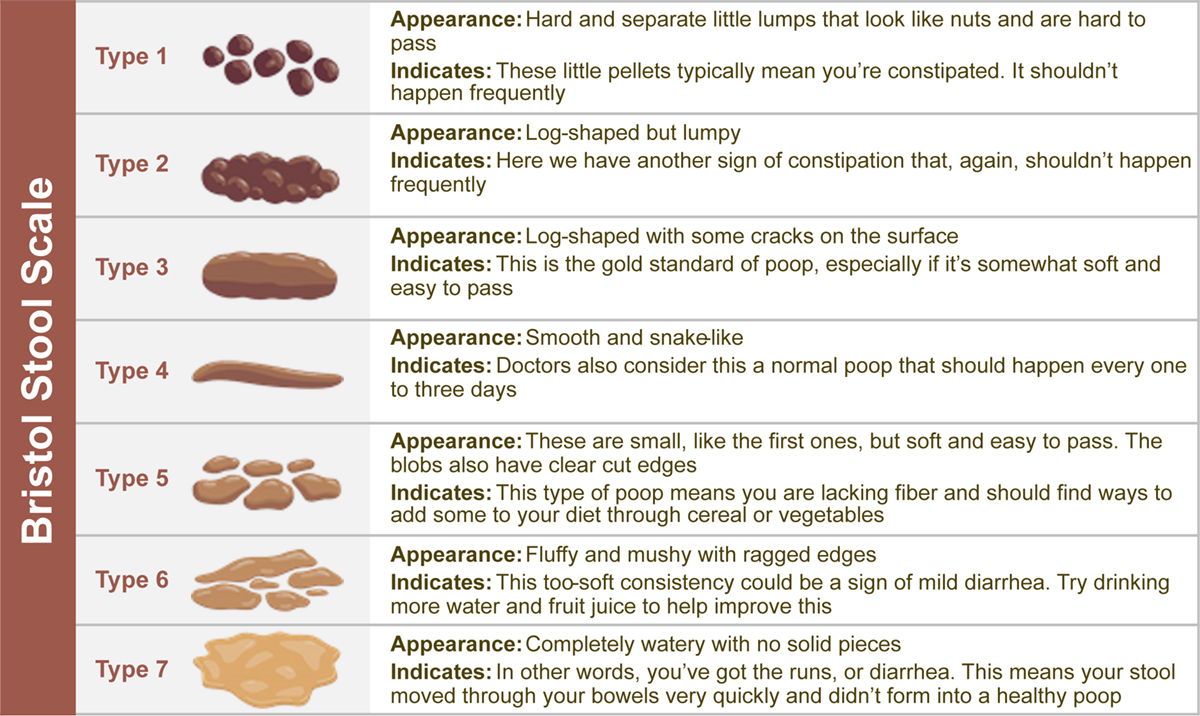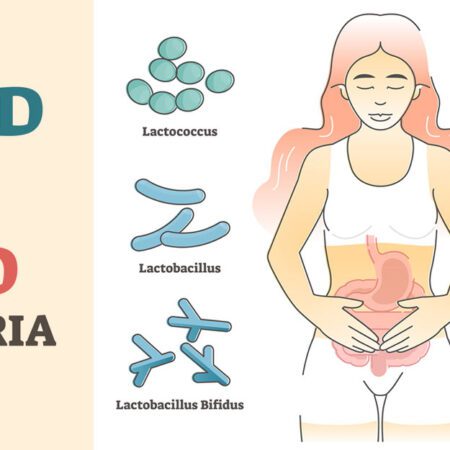What Your Poo Says About You

How Your Bowel Movements Reveal Your Health
Your poop may not be something you want to pay attention to – but it can reveal a lot about your health, particularly that of your digestive system. So, it’s worth taking a peek before you flush!
Here’s some basics on poop. It starts as the food you eat and travels from the mouth through the digestive system – esophagus, stomach, small intestine, and large intestine (colon). After all that, whatever is not used by your body becomes the waste that ends up in the toilet bowl. Along with any undigested food, your poop also contains liver waste products, bacteria, gas, and water.
Everyone’s poop will be different, and it will vary from day to day, depending on what you’re eating and what’s going on inside your body. So, it’s difficult to define exactly what normal poop looks like.
Thankfully, there’s a handy guide you can use to help you identify the health of your poop – and you. It’s known as the Bristol Stool Scale and it was developed by Ken Heaton, MD, from the University of Bristol, in 1997.
Bristol Stool Scale
The Bristol Stool Scale provides an easy way for you to keep track of your bowel movements and report any concerning changes to your health care professional.
Here’s a look at the Bristol Stool Scale:
What To Look Out for In Your Poop
Now that you know how to identify your poop, here’s some details on why your bowel movements are what they are and how you can improve your… output!
Size & Shape
Ideally, your bowel movements should result in a type 3 or 4 on the Bristol Stool Scale. Poop that is more like a type 1 or 2 typically means that you are constipated. Constipation occurs when the muscle contractions that move stool through the colon to the rectum are sluggish. When this happens, your colon absorbs much of the water that would otherwise be used to form your stool. This usually results in poop that is dry, hard, and difficult to pass.
Many things can contribute to constipation, including:
- Medications
- Lack of exercise
- Not enough liquids
- Not enough fiber in the diet
- Ignoring the urge to have a bowel movement
- Changes in habits or lifestyle, such as travel, pregnancy, and old age
- Problems with intestinal function
Type 5, 6, and 7 poops typically indicate some diarrhea. In general, stool should be easy to pass, without it being too watery. If your stool is watery, it’s usually nothing to worry about and will resolve itself within a day or two. If your diarrhea persists beyond a day or two, it’s worth getting some professional health advice because it may lead to dehydration, electrolyte imbalance, kidney failure, and organ damage.
There are many causes of diarrhea including:
- Bacterial infection
- Eating foods that upset the digestive system
- Allergies and food intolerances, e.g., Celiac disease or lactose intolerance
- Medications, including antibiotics
- Poor absorption of food
Color
Most of the time, poop should be a brownish color. This can vary, depending on what you’ve been eating and how much bile is in your stool. Bile is a fluid made by the liver to help digest fats, and it contributes to the color of your stool.
Changes to the color of your poop aren’t usually anything to be worried about, so long as the color change only lasts a day or two. However, color change over many days may indicate a serious health concern. For example, black poop can be caused by bleeding in the upper part of your digestive tract. This may be the result of a serious health issue such as cancer or a bleeding ulcer. If you’re noticing black, white, or bright red poop for more than a day or two, and you don’t think it’s related to something you’ve eaten, call a health professional right away.
Smell
Just as when we exhale, we breathe out carbon dioxide, the bacteria in the colon expel waste gas too. Some of these gases have odors and these can get trapped in your stools. Because each person will have a different diet and microbiome, each person’s stool will have a different odor – some stronger than others.
Although all poop smells, there are some smells that can indicate that something is wrong. Scientists are studying the types and amounts of gases produced by patients suffering from different conditions, such as IBS, ulcerative colitis, Crohn’s disease, or infections. They hope that by doing so, they’ll be able to diagnose these conditions by measuring the gas content of a patient’s flatus (farts).
So, it’s normal for your poop to smell, but if you notice a persistent change, talk to a healthcare professional to rule out any potential problems.
How Can I Change My Poop?
One of the fastest and easiest ways to improve your bowel movements is to make changes to your diet. Start by getting more fiber by eating vegetables, fruits, and whole grains. Fiber is a type of carbohydrate that passes through the body undigested. It can help bulk up and soften stools for people who are constipated. And, it can help solidify watery stools for people who are experiencing diarrhea.
Fiber also provides important health benefits, including lowering your risk of heart disease and diabetes. It’s one of the most important nutrients you can eat, yet most adults in the US do not consume enough of it. Here’s some tips for getting more fiber in your diet.
Talk to a Health Professional
By paying attention to what your body eliminates, you can understand better what’s going on inside of you. And, if things don’t seem right, it’s always a good idea to seek some advice from a healthcare professional.
At Nature’s Link Wellness Center, our mission is to help you discover natural ways to protect and improve your health through a balance of proper diet, hydration, fresh air, sunlight, exercise, and rest.
If you’re looking for a customized plan to improve your health using a combination of traditional and alternative techniques, call us at 337-332-2705 or reach us online for more information. We offer natural health consultations in Breaux Bridge, Lafayette, and the entire Acadiana area.
We look forward to working with you!





